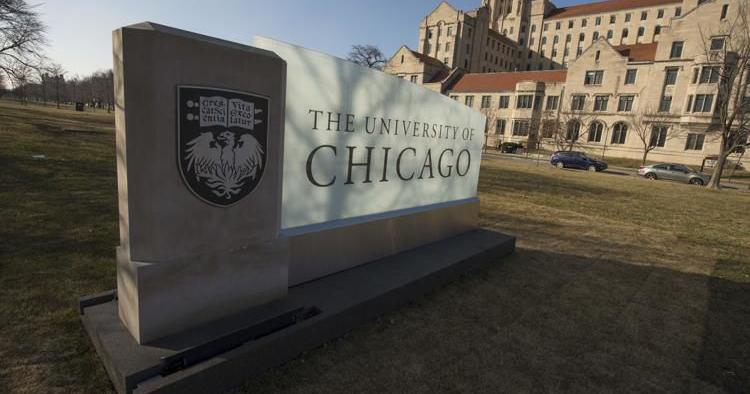The University of Chicago announced another round of staff layoffs and academic cuts as it faces a persistent budget deficit and shrinking federal support.
In an August 28 email to faculty, President Paul Alivisatos said the university must reduce expenses by $100 million to address both a “structural set of budget difficulties” and recent federal policy changes. So far about 300 staff positions have been eliminated, mostly in support services, with another 100 to 150 cuts expected this year.
The university has already tried to control spending through hiring freezes, a voluntary retirement incentive and tighter monitoring of staff positions. But the path forward, Alivisatos said, will require further “clear-eyed reassessment,” including scaling back doctoral programs and closing some of the university’s 140 centers and institutes.
“These plans require difficult choices and will result in the University stopping some good and worthy endeavors,” he wrote in a separate August 28 email to staff, “while growing others that are most fundamental to our core mission.”
The university’s Office of the Provost notes on its website that faculty hiring will slow by about 30% compared to recent years, with a focus on recruiting assistant professors. Provost Katherine Baicker said in a separate message to faculty that a faculty committee will study retirement options.
Administrative leadership positions will be reduced both centrally and within divisions and schools, in part by consolidating responsibilities across fewer leaders.
“One mechanism for doing this is to ask leaders to take on multiple responsibilities, offering the benefit both of a smaller administrative footprint and of more integrated activities,” Baicker wrote. “Another mechanism is to stop certain programs and activities, understanding that fewer people cannot carry forward the same workload.”
As administrative roles are reduced, the website says the university is making “efforts to reduce faculty administrative responsibilities” to ensure they have time to dedicate to core teaching and research functions.
“Rather than a uniform reduction of staff, positions will more likely be associated with programs that are discontinued or areas where activities will wind down,” the website reads. “The aim is to do fewer things well, rather than doing the same things with fewer people.”
The university has said that this time it will not pursue “across the board” benefit reductions, hiring freezes or budget cuts.
The university is also moving to reduce its Ph.D. population by 30% by 2030. Admissions to many humanities and social science Ph.D.s were paused late last month, and science units are being told to place students on grants more quickly and shorten the time it takes to get a degree.
“Even as the costs for supporting these students have gone up substantially, external support for doctoral students, especially federal resources, are much tighter,” Alivisatos wrote.
As doctoral admissions are being scaled back, university officials said they are considering growing undergraduate enrollment — and potentially master’s programs as well, though admissions for some of those programs are paused in the short term.
Unrestricted funding for research centers and institutes will also be reduced by at least 20% through stretched-out funding, fundraising pushes or outright closures. The review process, officials said, will weigh factors such as financial sustainability and “intellectual vibrancy.”
Capital projects will also be scaled back. Future initiatives will require 75% of funding secured before breaking ground, and Alivisatos wrote that projects will prioritize philanthropic or external support, rather than university dollars. The long-planned New Engineering and Science Building will shrink in size and budget, though the Chicago Quantum Exchange facility and teaching labs will remain.
At an April budget town hall, officials blamed lost federal research grants, reduced reimbursements, canceled student visas and declining investment income for deepening the deficit, pegged at $221 million.
The university did not respond to questions about the timing of layoffs or which staff will be affected. The U. of C.’s website notes another budget town hall is planned for September.
